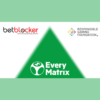The landscape of sports betting in the United States has been evolving rapidly, with more states legalizing mobile betting to cater to the growing demand from bettors and sports enthusiasts.
However, alongside this growth comes the need for regulatory oversight, particularly concerning non-gambling promotions offered by operators.
Ohio’s Fanatics Promotion and Regulatory Attention
In 2023, Ohio emerged as the latest state to legalize mobile sports betting, ushering in a new era of opportunities for operators and bettors alike. However, one promotion offered by Fanatics, a prominent sports merchandise retailer, caught the attention of the Ohio Casino Control Commission (OCCC). The promotion allowed individuals with new Fanatics Sportsbook accounts to receive bonus bets equivalent to their purchase of eligible merchandise. Unsurprisingly, this non-gambling incentive raised concerns among regulators about its potential impact on responsible gambling practices.
Massachusetts Gaming Commission’s Deliberations
Similarly, in Massachusetts, the Massachusetts Gaming Commission (MGC) is deliberating on the issue of non-gambling promotions offered by operators. In a recent meeting, the Commission discussed the possibility of banning promotions or bonuses that are not directly related to betting activities. Concerns were raised about the influence of gambling advertisements, particularly on young adults and individuals below the legal gambling age of 21.
Commissioner Perspectives and Regulatory Approach
Eileen O’Brien, a commissioner with the MGC, expressed concerns about the long-term implications of gambling advertisements, emphasizing the need for proactive measures to mitigate risks, especially among vulnerable demographics. While acknowledging the importance of consultation with licensed operators, O’Brien underscored the regulator’s commitment to finding a balanced solution that upholds responsible gambling standards while fostering a thriving gambling industry.
Stringent Regulations in Massachusetts
Massachusetts already boasts some of the strictest regulations regarding gambling advertising. Licensed operators are required to display a 21+ icon to indicate the minimum gambling age, and they are prohibited from entering into deals with universities across the state. The recent discussions by the MGC mark the initial steps toward potentially implementing further restrictions on non-gambling promotions or bonuses.
Next Steps and Future Outlook
While discussions have commenced in both Ohio and Massachusetts, no concrete actions have been taken thus far. Further consultations with industry stakeholders are necessary to evaluate the potential impact of banning non-gambling promotions on operators and consumers alike. As regulatory bodies continue to navigate this complex landscape, the overarching goal remains to safeguard consumers while fostering a sustainable and responsible gambling environment.
Conclusion: The Scrutiny of Non-gambling Promotions
In conclusion, the scrutiny of non-gambling promotions in Ohio and Massachusetts underscores the importance of responsible gambling practices and regulatory oversight in the burgeoning sports betting industry. While the debate continues, regulatory bodies are committed to striking a balance between consumer protection and industry growth. As the regulatory landscape evolves, collaboration between regulators, operators, and stakeholders will be crucial in shaping the future of sports betting in the United States.
FAQs About Non-Gambling Promotions in the World of Sports Betting
1. What prompted regulatory attention towards non-gambling promotions in Ohio?
The Ohio Casino Control Commission (OCCC) raised concerns about a promotion offered by Fanatics, where individuals with new Fanatics Sportsbook accounts could receive bonus bets equivalent to their purchase of eligible merchandise.
2. What are the key concerns raised by regulatory bodies regarding non-gambling promotions?
Regulatory bodies, such as the Massachusetts Gaming Commission (MGC), are concerned about the potential impact of non-gambling promotions on responsible gambling practices, particularly among young adults and individuals below the legal gambling age of 21.
3. What are the current regulations in Massachusetts regarding gambling advertising?
Massachusetts imposes strict regulations on gambling advertising, requiring licensed operators to display a 21+ icon indicating the minimum gambling age. Additionally, operators are prohibited from entering into deals with universities across the state.
4. What is the perspective of Commissioner Eileen O’Brien on gambling advertisements?
Commissioner Eileen O’Brien expressed concerns about the long-term implications of gambling advertisements, emphasizing the need for proactive measures to mitigate risks, especially among vulnerable demographics.
5. What steps are regulatory bodies taking to address the issue of non-gambling promotions?
Regulatory bodies in Ohio and Massachusetts are engaging in discussions and consultations with industry stakeholders to evaluate the potential impact of banning non-gambling promotions on operators and consumers, while ensuring responsible gambling practices are upheld.


















